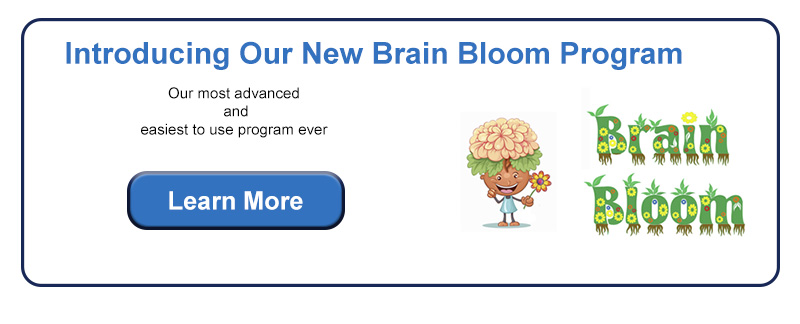
When a child struggles in school parents often go down many fruitless paths to help them. This is because most systems or professionals tend to offer only a single faceted approach. While each of these individual techniques or strategies often have merit, they simply don't work, or at least don't work well, by themselves.
That's why the Learning Success System is different. Because the Learning Success System addresses every aspect of the problem.
When there is a learning struggle it is not only the particular subject that is the problem. Yet most of the time this is what gets addressed. Extra homework, extra tutoring, extra help from the school or a learning center. Unfortunately, these strategies rarely work. And they can actually lead to further problems. That's because they don't address the core of the problem. They are only addressing the symptom. That approach is usually doomed to fail.
The Core Problem
Everybody learns a little differently. This is neither good nor bad. It is simply what we make of it.
Each learning style has strengths and weaknesses. This includes problems such as dyslexia, dyscalculia, dysgraphia, and ADHD. Each of these conditions has both strengths and weaknesses. It is our job, as parents and educators to both capitalize on the strengths and also build up the weak areas. That's exactly what the Learning Success System does.
The Learning Micro-Skills
Our ability to learn new things is actually a combination of skills. We call these skills the Learning Micro-skills. These skills fall into three categories. Visual, auditory, and kinesthetic. There are numerous skills within each of these categories. These are not just our senses, they are the way our brain processes the information from our senses. How each of us does this is our own personal learning strategy. Not only can we develop each of these skills, we can also learn new learning strategies.
Sometimes a person gets stuck in a single learning strategy. By developing each micro-skill and using them in different ways new strategies are developed. The individual learns to apply the appropriate strategy for each situation. Forn example, a poor speller typically is using auditory memory to spell, a good speller uses visual memory, a great speller uses both together, and a world class speller is using auditory memory, visual memory, and kinesthetic memory.
Anyone can learn to learn in a more effective way.
Building Confidence
As a parent, you may have watched as your child has slowly lost confidence. They started out a bubbling basket of laughs and giggles. As their learning difficulties progressed their confidence tanked. It's heartbreaking for a parent to watch.
This is the normal progression. Children form their opinions of themselves based on what they see. And when they see themselves struggling they decide they are stupid.
This progresses in a downward spiral. Getting worse each day. Until they eventually give up altogether.
What's worse is that this loss of confidence blocks learning ability. Once they have lost confidence in themselves they simply cannot learn well. Which makes them lose more confidence. We think that once we get them past their struggles their confidence will return. This is backward. We need to build their confidence to get them past their struggles.
This is why many tactics do not work. Or they work in a limited way for a limited time. Then the child regresses again. It's because doing things like adding extra tutoring or special classes from the school are all signals to the child that they are flawed. If confidence building strategies are not implemented nothing will work. Or at least it won't work long term.
Grit
Life will always have struggles. The way we deal with them determines our success. Grit is that quality that gets us through the hard time.
Studies, in a variety of fields, have shown, that grit is the single biggest factor that determines success. It does not matter what field of endeavor, grit outweighs intelligence, charisma, technical skills, creativity, or any other positive quality when it comes to winning at life.
And, as it turns out, grit can be taught.
Generalizing Learning Skills
One of the biggest mistakes with "brain training" or other intelligence building techniques is that the skills are not generalized. This means that it is possible to build up a learning skill but not be able to use that skill when it counts. For example, you could get really good at crossword puzzles but this does not make you more intelligent. It doesn't even fully activate the brain. It just makes you really good at crossword puzzles.
When we build up the micro-skills we do that in a way that generalizes those skills. This actually increases intelligence because all of these micro-skills together are intelligence.
In other words, you can build up micro-skills in the wrong way and have no effect. Build them up using the correct methods and you have a dramatic effect. Better grades, higher intelligence.
Neurogenesis and Neuroplasticity
Neurogenesis and neuroplasticity were only discovered in the last decade. Because of that most learning systems and educational systems do not use them. They are amazing powerful concepts that can make use smarter and perform better.
Our intelligence is actually fluid. We are not stuck with the brains we were born with. We can actually develop our brains over time. Making them stronger and more efficient. Just like muscles.
Neurogenesis and neuroplasticity are what allow us to do that. Neurogenesis is when our body produces new brain cells. Neuroplasticity is when these brain cells create new connections with other brain cells. Forming new intelligence.
Neurogenesis and neuroplasticity only happen under certain conditions. The Learning Success System is full of exercises that cause neurogenesis and neuroplasticity to happen. This is the magic bullet that speeds up the process. It develops new learning skills faster.
In order to increase our learning capacity, we need neurogenesis and neuroplasticity.
Tame The Tantrums
Just like confidence problems, emotional problems can completely block learning ability. All children who struggle with learning will develop emotional issues. They may display this in different ways. Tantrums, shutting down, avoidance, acting out, or even using charisma to sidetrack you. No matter what their technique, these are all tactics to avoid school work.
It's important to use techniques to tame the tantrums. The Learning Success System has a variety of approaches that all work together to make learning fun again, like it should be.
Increase Focus
Many struggling learners have a difficulty with focus as well. There are numerous causes for this and we address each one. Focus is a skill, just like anything else.
If you are ready to get your child on the path to success today get your membership in the Learning Success System right now. Join the thousands of other parents who have helped their children achieve academic success with Learning Success.






